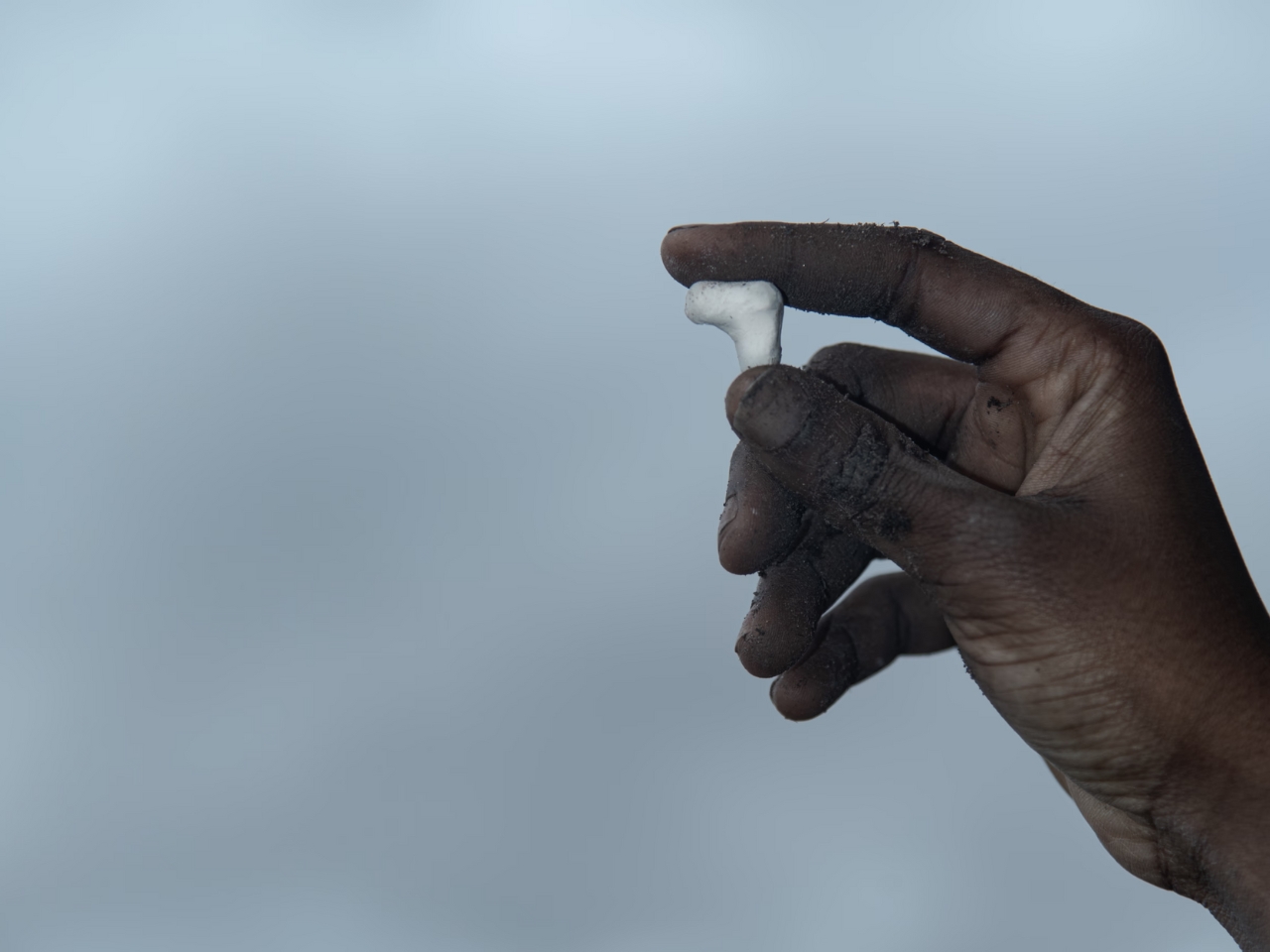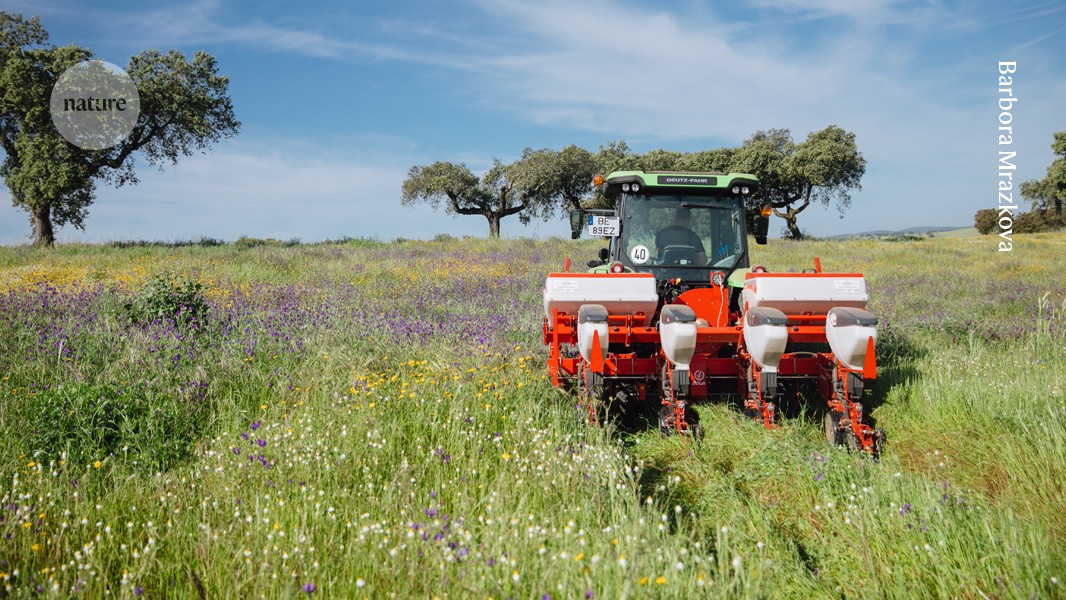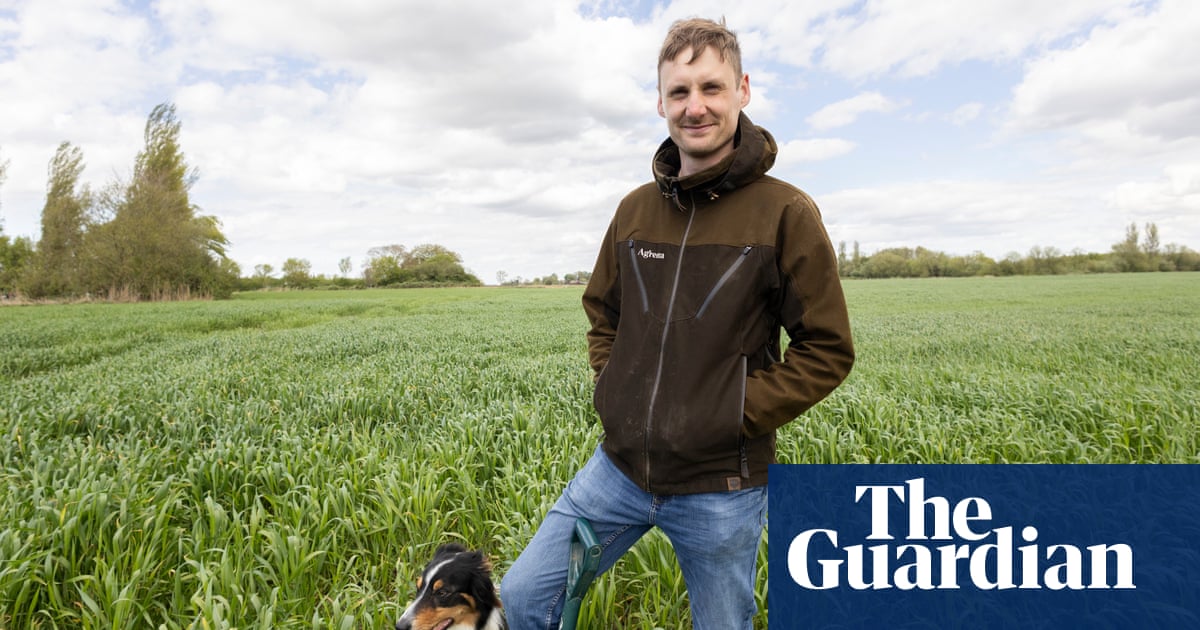#regenerative-agriculture
#regenerative-agriculture
[ follow ]
Agriculture
fromwww.theguardian.com
2 months agoOver a pint in Oxford, we may have stumbled upon the holy grail of agriculture | George Monbiot
Certain regenerative farming techniques can achieve high yields with minimal environmental harm by harnessing soil microbes to regulate nutrient release and retention.
fromFast Company
3 months agoIt's time to reimagine farming as an innovative career path
American agriculture is facing a crisis. The average U.S. farmer is nearly 60, and according to American Farmland Trust research, we are losing farmland at a rate of more than 2,000 acres per day. Yet, consumer demand for organic and regenerative food continues to climb, creating an urgent need. This is not just an agricultural issue. It is an economic and cultural challenge with profound implications for our food security, our environment, and our communities.
Agriculture
fromNatural Health News
3 months agoWhat the MAHA Report Gets Right...and Wrong
It's refreshing to see top health officials in government recognize some (but not all of) the multi-factorial drivers and determinants of children's health and recognize the value of issues that ANH has been working on for years: the importance of real, whole foods, better Dietary Guidelines, regenerative agriculture, reducing chemical and environmental exposures (pesticides, electromagnetic field radiation, etc.), and healthcare that focuses on prevention, to name a few. Getting these issues on the agenda, and in the minds of the public, is itself a victory.
Alternative medicine
Environment
fromDaily Coffee News by Roast Magazine
4 months agoBlue Bottle Coffee Claims Carbon Neutrality, Plans Regenerative Agriculture
Blue Bottle Coffee achieved carbon neutrality for 2024, reduced GHG emissions intensity 18.4% from 2018, and will invest in regenerative agriculture and climate resilience.
Food & drink
fromwww.theguardian.com
4 months agoHow to turn scallop roe into a delectable butter recipe | Waste not
Jersey's regenerative food movement, embodied by scallop-based recipes and Regen Gathering, showcases sustainable, transformative farming and culinary practices that reduce waste and celebrate local bounty.
fromFast Company
4 months ago3 Lessons I learned from regenerative agriculture
A few years ago, I read an article that changed how I think about bourbon. It wasn't about distilling or aging. It was about bread. Bread Is Broken by Ferris Jabr explores how modern industrial farming stripped grains of their flavor and nutritional value in exchange for higher yield, longer shelf life, and cost efficiency. As I read, I kept wondering if flavor has been lost in wheat; what does that mean for the wheat in our whisky?
Agriculture
fromFast Company
4 months agoWhy consumers are demanding more than just "sustainable"
Sustainability is no longer just a buzzword. Today's younger consumers are not satisfied with talk and small token actions that commanded respect in the past. They actually know the difference between verbiage and meaningful action and are also far less inclined to applaud brands for simply reducing impacts. Instead, through social media and particularly influencers, they seek companies that are endeavoring to regenerate our planet by actively restoring the soil, rebuilding ecosystems, and strengthening local communities.
Agriculture
Coffee
fromDaily Coffee News by Roast Magazine
4 months agoNespresso First to Claim Rainforest Alliance Regenerative Certified Coffee
Nespresso will be the first brand to market Rainforest Alliance Regenerative certified coffee, launching a consumer-facing seal on select lots from Costa Rica and Mexico in 2026.
Agriculture
fromInside Climate News
4 months agoRegenerative Agriculture Is All Over the Agenda at Climate Week NYC. But What Does It Mean? - Inside Climate News
Regenerative labeling lacks a standardized definition, allowing producers to market products as regenerative without consistent practices or federal oversight.
Agriculture
fromEarth911
4 months agoSustainability In Your Ear: Heather Terry's Regenerative Journey At GOODSam Foods
GoodSAM Foods sources 90% of ingredients from smallholder farms, eliminates middlemen, reinvests profits, and prioritizes direct relationships and regenerative agriculture for climate resilience.
fromDaily Coffee News by Roast Magazine
5 months agoRainforest Alliance Launching Regenerative Agriculture Certification for Coffee
Rainforest Alliance just announced the launch of a new standard and certification for regenerative agriculture in coffee, with a distinct 'regenerative' seal expected to land on consumer coffee bags in 2026. The organization, which reduced requirements for its core sustainable agriculture certification earlier this year, said the new regenerative agriculture add-on is designed to give farmers and buyers a science-based pathway to achieve positive outcomes in soil health, biodiversity, water stewardship, climate resilience and livelihoods.
Coffee
fromDaily Coffee News by Roast Magazine
5 months agoGCP Publishes RegenCoffee, Proposes Common Language for Regenerative Agriculture
Regenerative agriculture has become one of coffee industry's buzziest words of the decade, despite having no clear, universal definition in coffee or other sectors. While it is primarily associated with environmental stewardship - including soil regeneration and biodiversity - it has also become associated with climate resiliency, farmer profitability and even more abstract concepts such as corporate sustainability. GCP, meanwhile, says the RegenCoffee guidance is designed to help
Coffee
Agriculture
fromwww.theguardian.com
5 months agoIt's like Sleeping Beauty; we have to wake them': winemakers urged to help save earthworms
Vineyard practices—bare, compacted, pesticide‑treated soil—have reduced earthworm populations; increasing plant cover and reducing tillage can revive worm communities and soil resilience.
Silicon Valley food
fromLondon Business News | Londonlovesbusiness.com
7 months agoNine companies impacting the global food chain - London Business News | Londonlovesbusiness.com
Consumer demand and environmental policies boost sustainable food companies.
Technology is enhancing sustainability in food production and distribution.
Sustainable practices lead to both environmental benefits and profitability.
Nine innovative companies are leading in sustainable food solutions.
[ Load more ]




